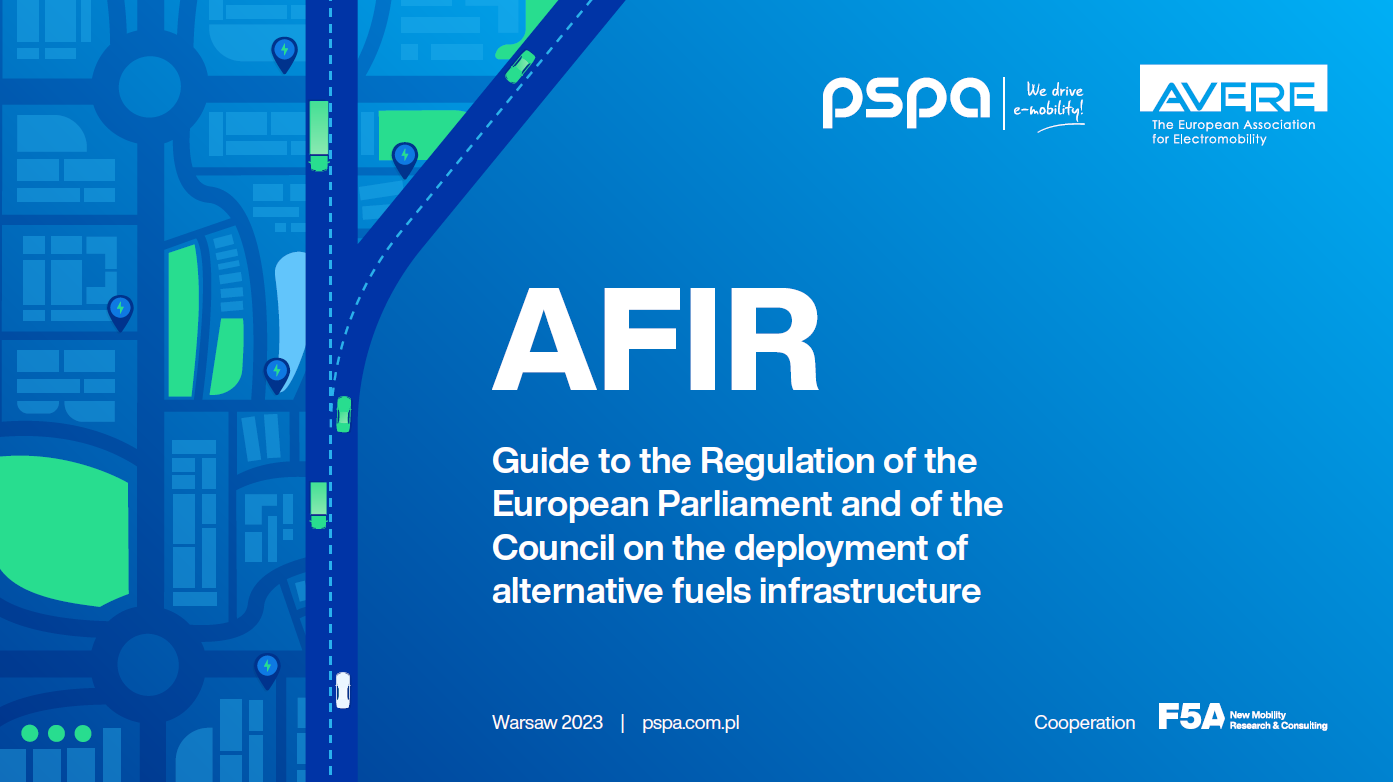
Together with our Polish member PSPA, we prepared an exhaustive guide that will answer all your questions about AFIR
Ladies and Gentelman,
roughly two years after the presentation of the initial draft of AFIR as part of the "Fit for 55" package, the EU Council has now approved the final version of the new regulation. This could potentially serve as a significant step towards expanding the charging infrastructure in the European Union.
The AFIR, being a regulation that does not require implementation into national law, will come into effect in the first half of 2024. This new legislative act imposes highly ambitious requirements on each Member State, primarily centered around expanding infrastructure. The key requirement is the obligation to adjust the total power of publicly available charging stations to the number of registered electric cars (1.3 kW for each BEV and 0.8 kW for each PHEV). Given the rapid growth anticipated in the Polish e-mobility market, this means that within less than three years, the power output of charging infrastructure in Poland will need to increase fivefold compared to the levels in 2022. This presents an enormous challenge for all stakeholders in the e-mobility sector, particularly the government administration.
AFIR also includes requirements pertaining to the installation of charging hubs for both light-duty and heavy-duty vehicles along the TEN-T network, the provision of payment terminals for the chargers or smart charging functions and obligations concerning information about charging rates and reporting by the Member States.
The purpose of this guide is to present, in an accessible, infographic form, the objectives of the AFIR that are most relevant to drivers, operators and Member States.
We hope you will enjoy our report,
Maciej Mazur
Managing Director, PSPA
President, AVERE
